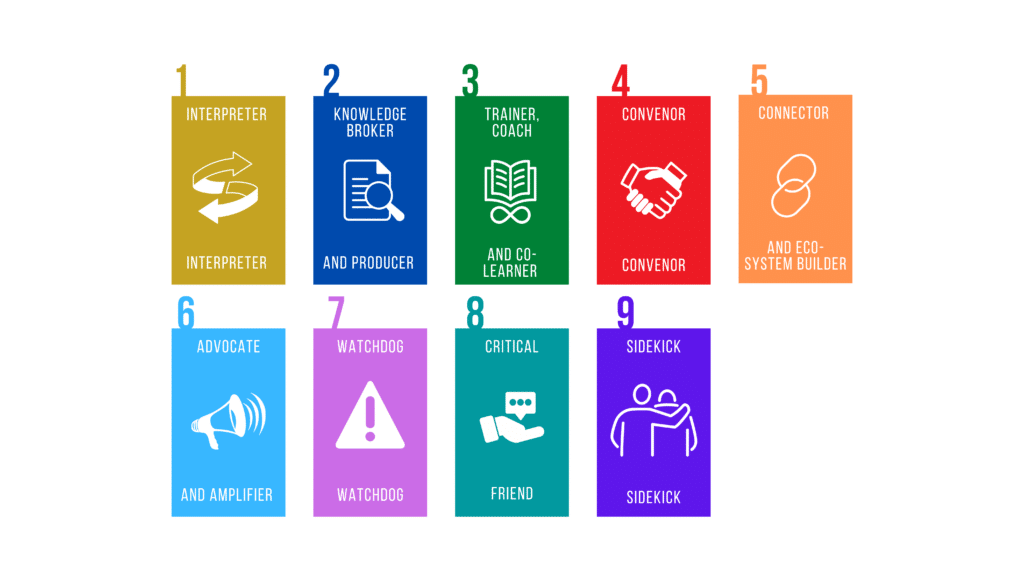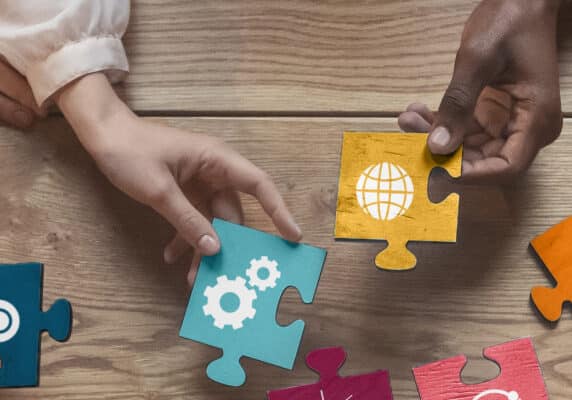INGO friends, it’s time to reimagine our role. What better time to do it than at the start of a new year?
For many of us, the new year is an opportunity to start afresh.
Yes, it’s a terrible cliché, and you’ve probably lost count of the number of “How to be a kinder, fitter, less anxious, well slept, better read version of yourself” articles you’ve already scanned in the past week. Nevertheless, there is something powerful about the sense of renewal or improvement that comes at the start of the year.
For all of us working in the INGO sector, the calls to reimagine our role and purpose have grown from a whisper to a chorus over the past few years. A response I often hear from people working for INGOs is “is there a role for us in the future”? The feeling of not being useful anymore is an existential fear that all of us probably suffer from in our personal and professional lives.
And yet the simple truth is that we, the INGOs in the “Global North” were supposed to become less useful over time. Wasn’t that one of the central principles of much of our sector, that we do ourselves out of a job eventually?
So what can and should INGOs do if they are no longer needed as implementers or even conduits of funding? As an intermediary with no in-country presence, we’ve identified nine distinct roles that we play which are valued by our partners, beyond channelling funding.
1. The interpreter
The policies and statements of donors and policymakers are often couched in jargon that makes it difficult for local actors to decipher. INGOs can play a useful role in translating them into language that is more accessible, ensuring that local actors aren’t excluded from discussions and trends taking place at the international level.
2. The knowledge broker
While the knowledge and expertise to tackle complex issues is often found locally, there is a wealth of knowledge and expertise residing elsewhere, particularly among local activists and practitioners in other countries. INGOs can play a useful role by matching knowledge needs in one context with knowledge reserves from another.
3. The trainer, coach, and co-learner
While local organisations are rightly very critical of the problematic framing of “capacity building”, they also acknowledge that there are skills that they are keen to develop and strengthen. INGOs can plug this gap by identifying training and learning opportunities for their partners as necessary.
Subscribe to our newsletter
Our weekly email newsletter, Network News, is an indispensable weekly digest of the latest updates on funding, jobs, resources, news and learning opportunities in the international development sector.
Get Network News4. The convenor
Opportunities for collective reflection and learning among civil society are few and far between. INGOs can play a useful role in providing spaces for local groups to reflect, plan and learn together, either in-country or outside, providing funds, logistics and ‘cover’ for these meetings to take place.
5. The connector and eco-system builder
Civil society in most countries is highly fragmented, so INGOs can help to ‘connect the dots’ both horizontally (between grassroots actors across the region and country) and vertically (connecting grassroots actors with national-level actors and processes). Beyond that, strengthening the ecosystem requires linking activists in different countries and closing the gap between local actors and those operating at the multilateral and global levels.
6. The advocate and amplifier
One of the most impactful roles an INGO can play is to use its power to advocate to policymakers on behalf of local actors, create space for local actors to advocate directly and ensure that local organisations receive a profile, credit and a platform for their work and achievements. This includes the crucial role that INGOs can play in educating the general public in their own countries about the importance of international cooperation and solidarity with local actors in the Global South.
7. The watchdog
Civil society space to operate safely in many countries around the world is in decline. INGOs can play an important role as watchdogs, monitoring trends in the policies and practices of repressive states, raising this in the international arena and working with others to counter these practices.
8. The critical friend
Through discussions with our partners over many years, we understand that our role as a critical friend is highly valued. A critical friend does not use its power to dictate the terms of the relationship but instead acts as a sounding board for ideas, challenges and opportunities faced by the local partner.
9. The sidekick
Perhaps the least discussed role for INGOs is that of the sidekick. By “sidekick” we are talking about a subordinate role, one that supports the local organisation in whatever it might need but does not overstep its support role. The role of sidekick is primarily a state of mind or philosophy, which aims to reverse the status quo, so that Global South actors are acknowledged as being in the driving seat.

While the nine roles above provide one possible answer to the future role of the INGO, it’s important to note that many of the above roles are temporary, designed to plug the holes in a system that does not work as it should. And let’s not allow these roles to obscure an equally important question: whether your organisation should exist at all. If your mission is done, or there are local organisations delivering the same mission, then perhaps it’s time to step back, leave or close.
So let 2023’s New Year’s Resolution be this: let us be brave enough to imagine a world in which we are no longer doing the work that local CSOs could be doing. Because that world is already here.
This blog is based on a paper released today by Peace Direct The nine roles that intermediaries can play in international cooperation.
Category
News & Views



